
2021 Mid-year CEO Survey
A Philippine CEO Survey
The Philippine CEOs see partnerships, digitalization, sustainable business practices, and collaborations between the private sector and the government to keep business afloat in the face of COVID-19.
A year after COVID-19 became a global pandemic, uncertainties still exist across the world. Since the first case of COVID-19 was reported in China in December 2019, over 175m COVID-19 cases and 3.8m deaths have been reported globally. Despite the rollout of vaccines and easing of restrictions in different countries, the path to recovery remains unclear. While some organizations are starting to feel more optimistic, it will take years to recover from the economic losses that resulted from the pandemic.
In the Philippines, the first lockdown started on 16 March 2020, and was eased in May 2020. A year later, the government placed Metro Manila, Bulacan, Cavite, Laguna, and Rizal under enhanced community quarantine (ECQ), the strictest quarantine level, because of the increasing number of new COVID-19 cases. With this second ECQ during the pandemic, employees, business owners and Filipinos in general felt the country is back to square one. While the vaccination rollout is ongoing, only 4.3% of the total population has been fully vaccinated as of 21 July 2021.
To understand the continuing impact of the COVID-19 outbreak on businesses in the Philippines, PwC Philippines, together with the Management Association of the Philippines surveyed 131 CEOs from April to May 2021.
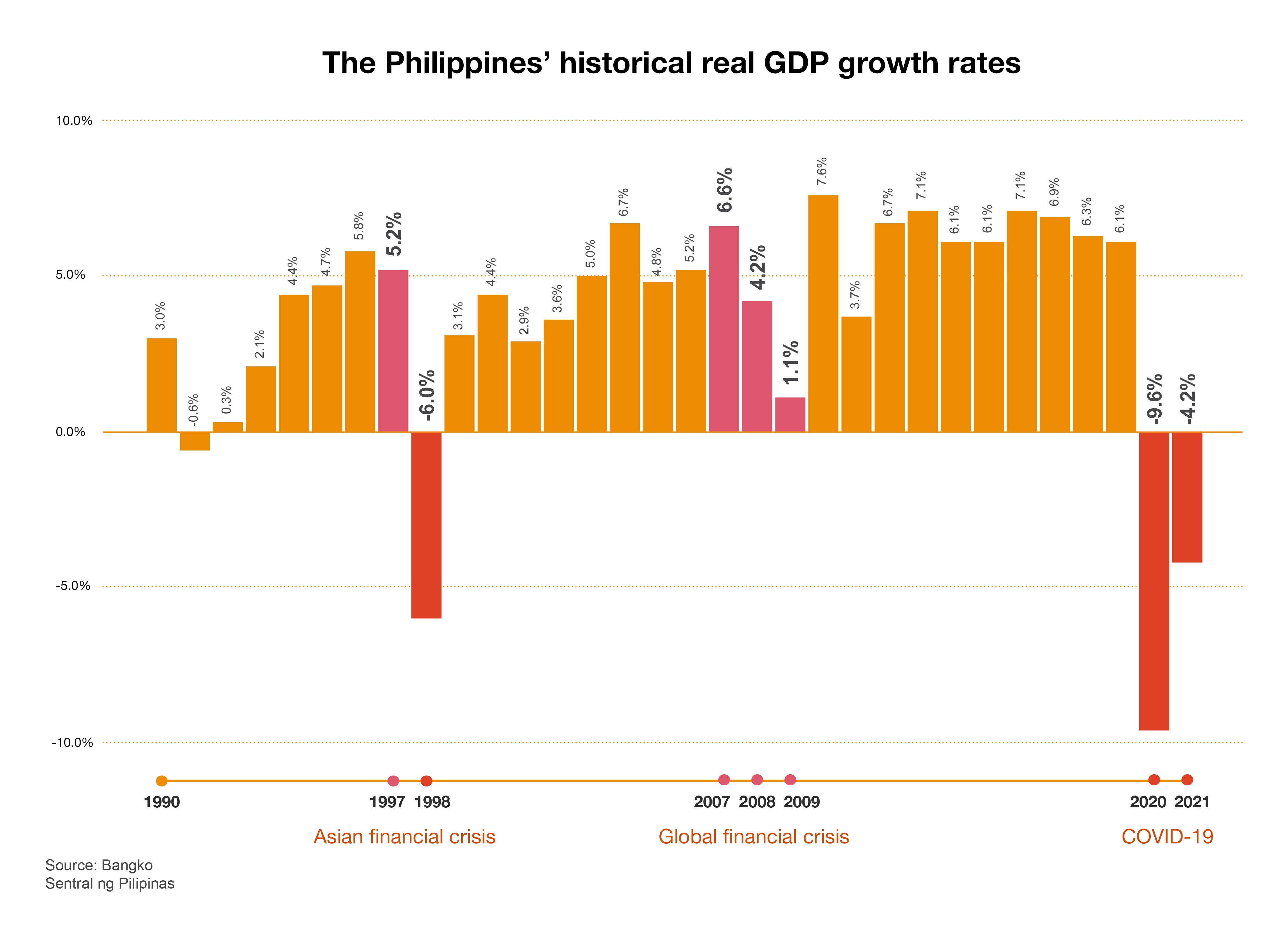
In 2020, the Philippines had the worst economic performance with the real GDP growth rate declining to -9.6%. Such decline has become the largest since the second world war, and is worse than the impact of the Asian Financial Crisis in 1997. Despite the ongoing concerns, majority of the CEOs are confident about their industry’s prospects for revenue growth over the next 12 months. In the same manner, the CEOs feel confident about their organization’s revenue growth in the next few years.
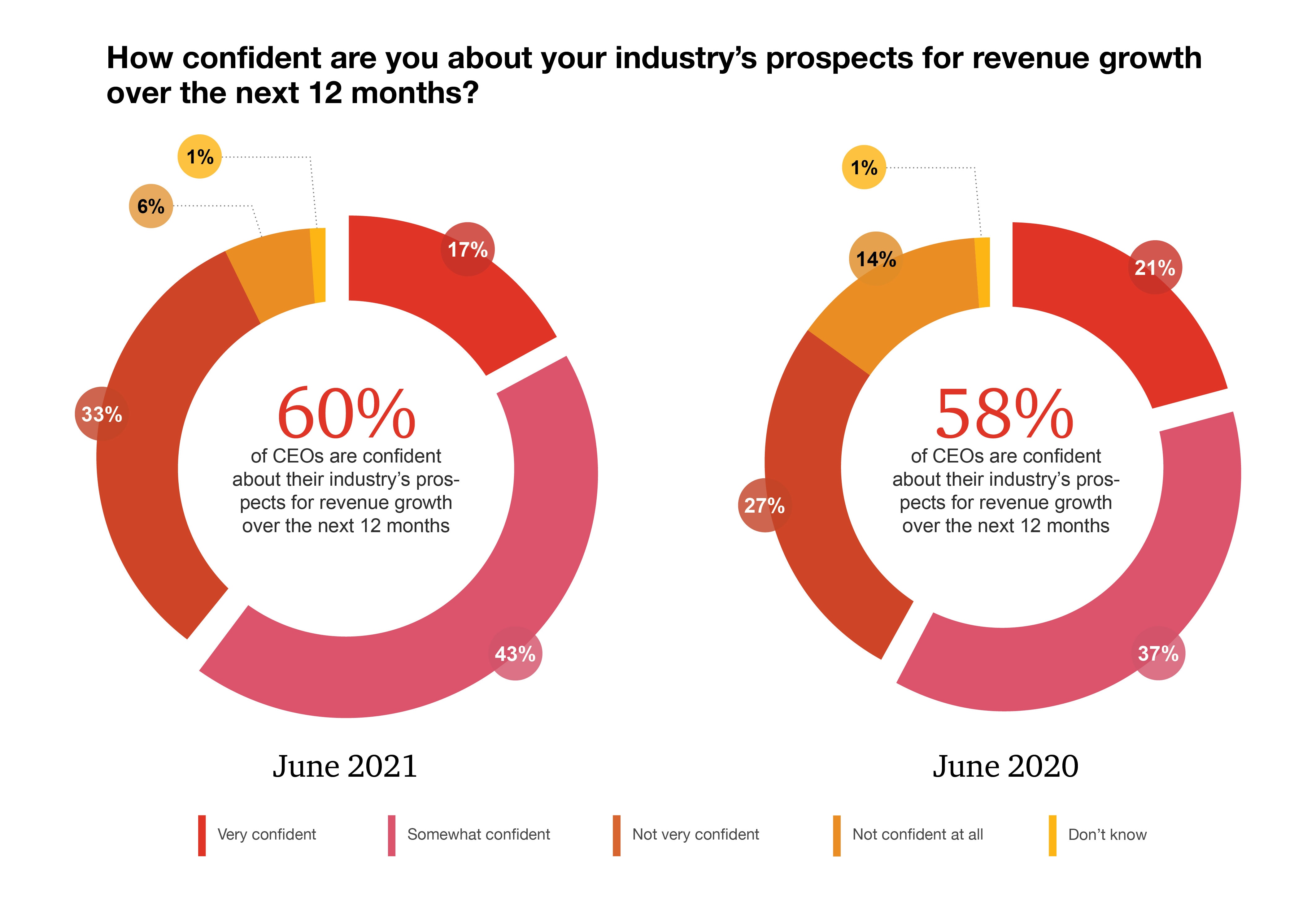
Government initiatives that may have helped boost the business leaders’ confidence include the Bayanihan to Heal as One (Bayanihan 1) law and Bayanihan 2 law. The Bayanihan 1 law was signed by President Duterte on 25 March 2020, and was in effect for three months. Bayanihan 1 law provided funds to address the requirements of COVID-19 for tracing, testing, and treatment, and at the same time provided assistance to low-income families and returning overseas Filipinos who were economically displaced because of the quarantine restrictions. Around 17.6m and 14m low-income families received the first and second tranches of the Social Amelioration Program, respectively.
Meanwhile, the Small Business Wage Subsidy program benefitted 2.1m workers employed by small businesses that were adversely affected by quarantine restrictions. The Bayanihan 2 law was signed by the President on 11 September 2020. The law will help sustain the efforts to improve the health system capacity, particularly on contact tracing, testing and isolation protocols. Such law will also provide financial assistance to the sectors that were adversely affected by the pandemic such as transportation, tourism, education, and MSMEs.
The government also crafted the Corporate Recovery and Tax Incentives for Enterprises (CREATE) law. The law, which was signed by President Duterte on 26 March 2021, lowers the 30% income tax rate of domestic corporations to 25% for large enterprises or 20% for businesses with total assets not exceeding PHP100m and total taxable income of not more than PHP5m.
While most of the CEOs are confident about future growth, 67% of the respondents believe that it will take over a year to over three years for their businesses to recover. Similarly, majority of the CEOs say that it will take over two years for the country’s economy to recover. With the Philippines far from achieving herd immunity as well as the ongoing restrictions, 58% of the CEOs believe that the country’s real GDP growth rate will be below 3% in 2021.
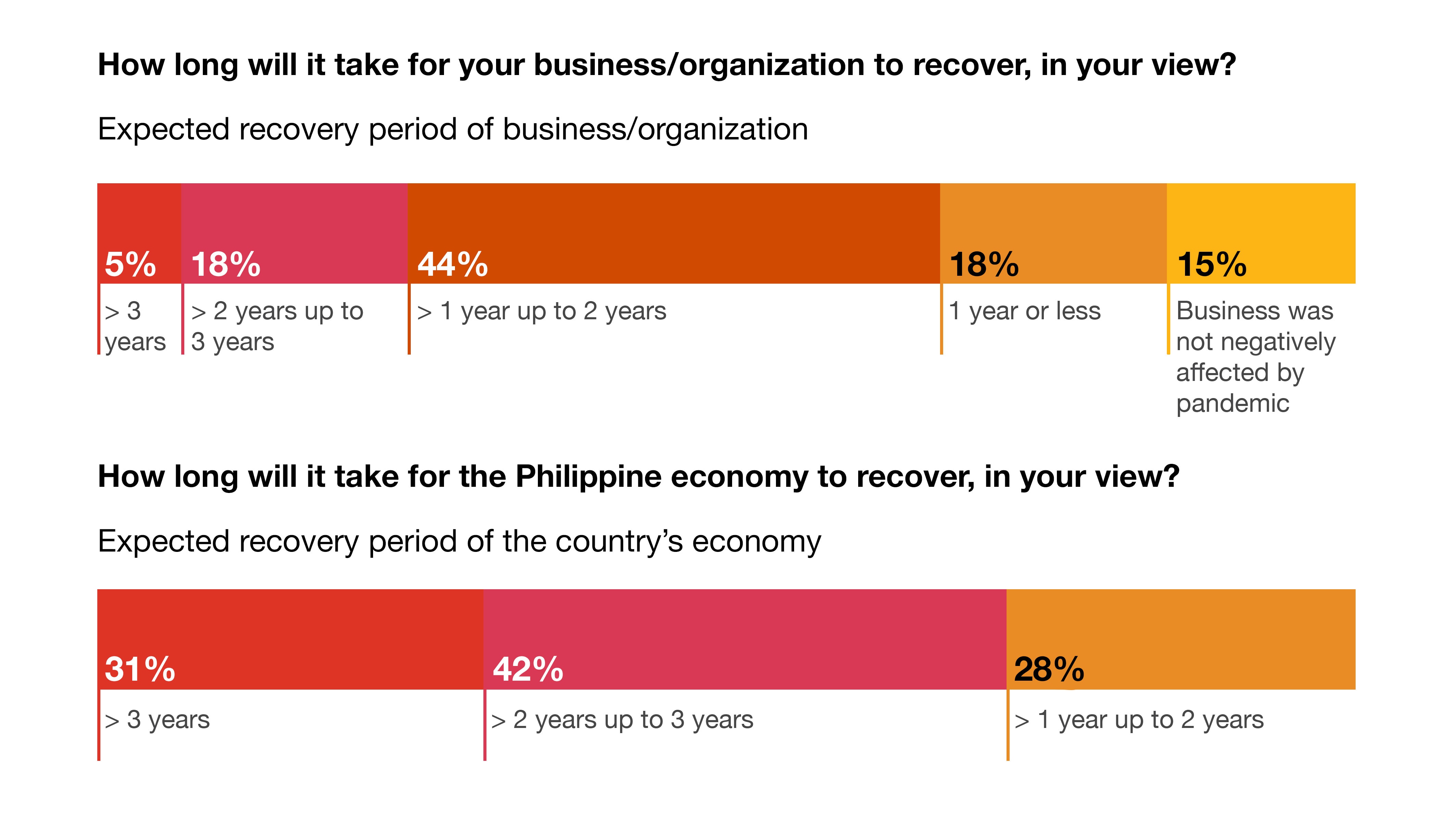
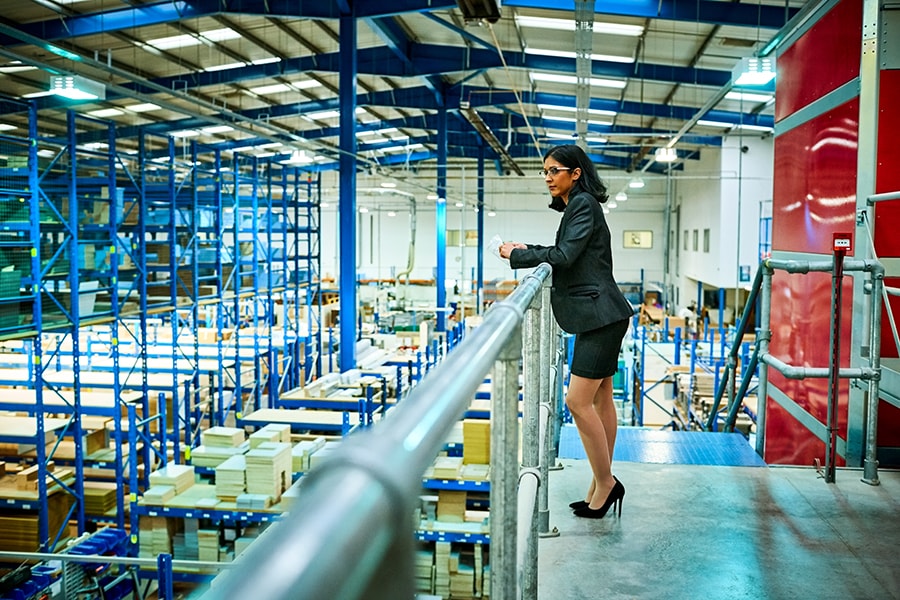
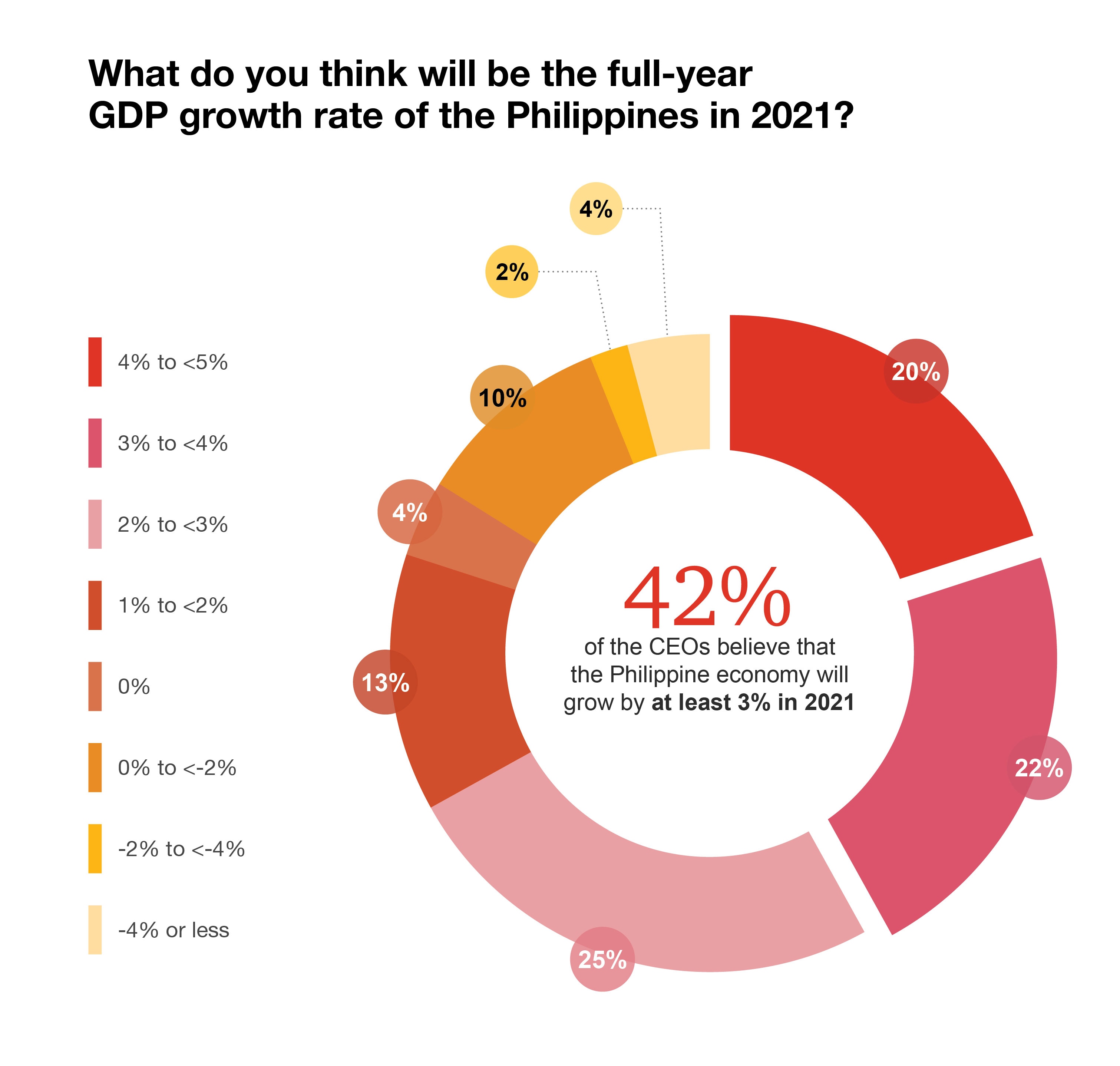
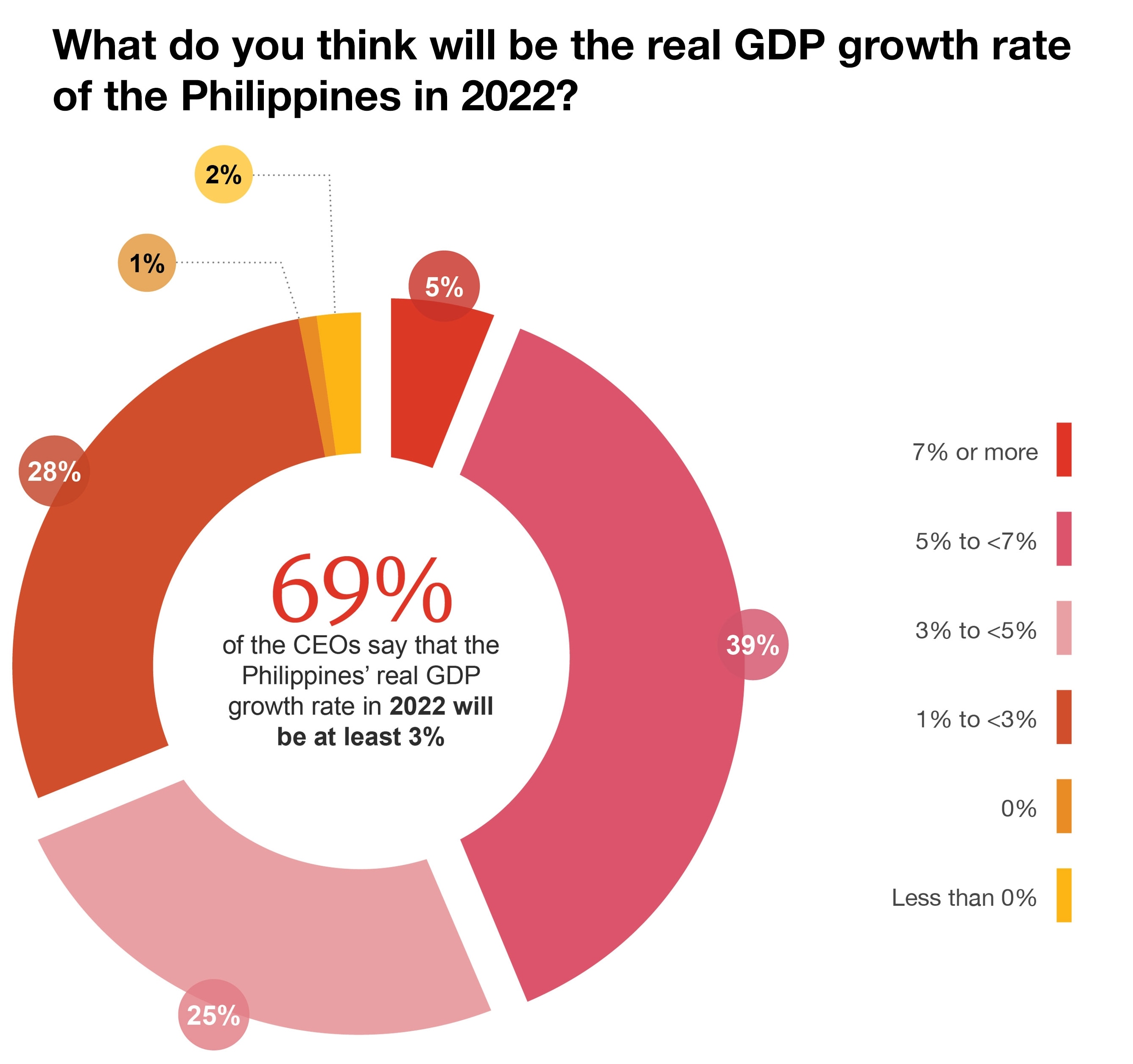
In 2020, 50% of the CEOs said that COVID-19 has the potential to impact their business operations. This year, despite the initiatives to help organizations recover from the pandemic, 47% of the CEOs still say that COVID-19 is causing a continuing concern. Last year, over 50% of the CEOs were expecting revenue losses of over 20%. Based on the actual financial results, however, only 40% of the CEOs reported revenue losses of over 20% in 2020. Twenty-one percent of the CEOs also say that they had no losses because of COVID-19. Some of the initiatives that may have helped mitigate the impact of business disruptions include digitalization, changing the product mix, and introducing relevant products and services. While companies are starting to normalize their operations and people are going back to the workplace, 43% of the CEOs still expect to lose over 10% of their revenues due to COVID-19 this year. Industries that are still facing challenges include tourism, leisure, and traditional retail and food service.
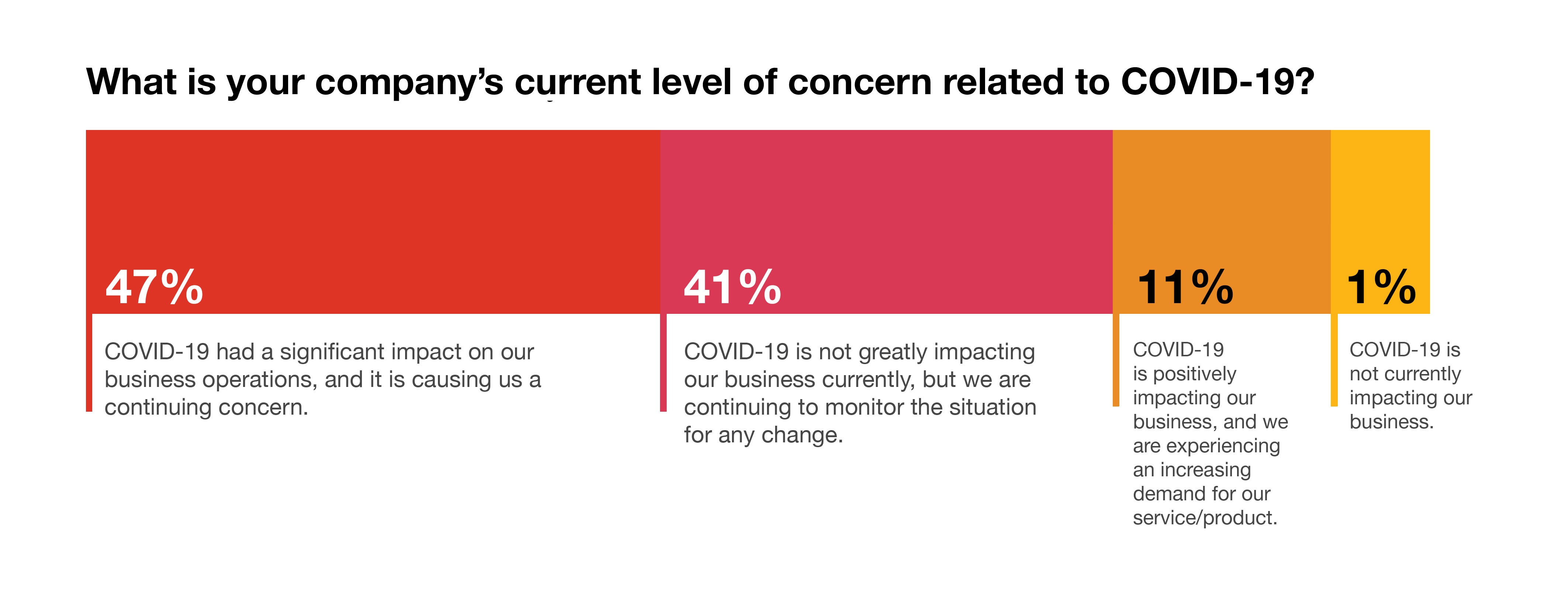
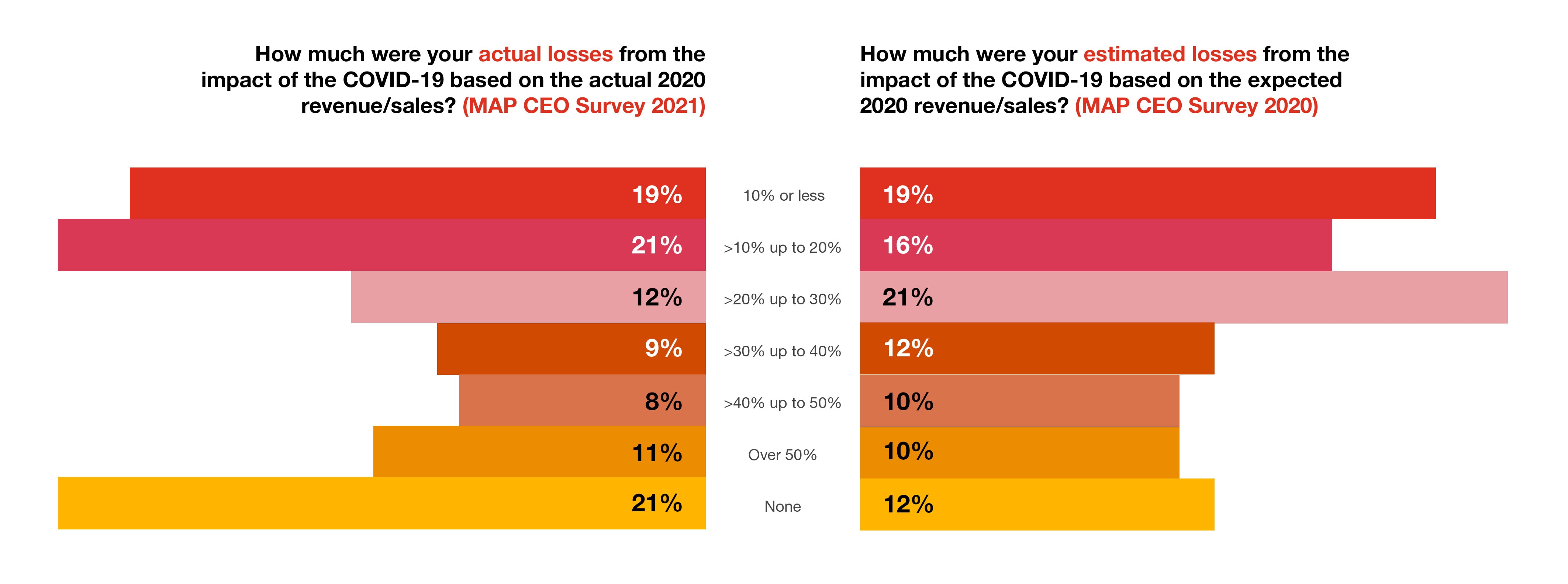
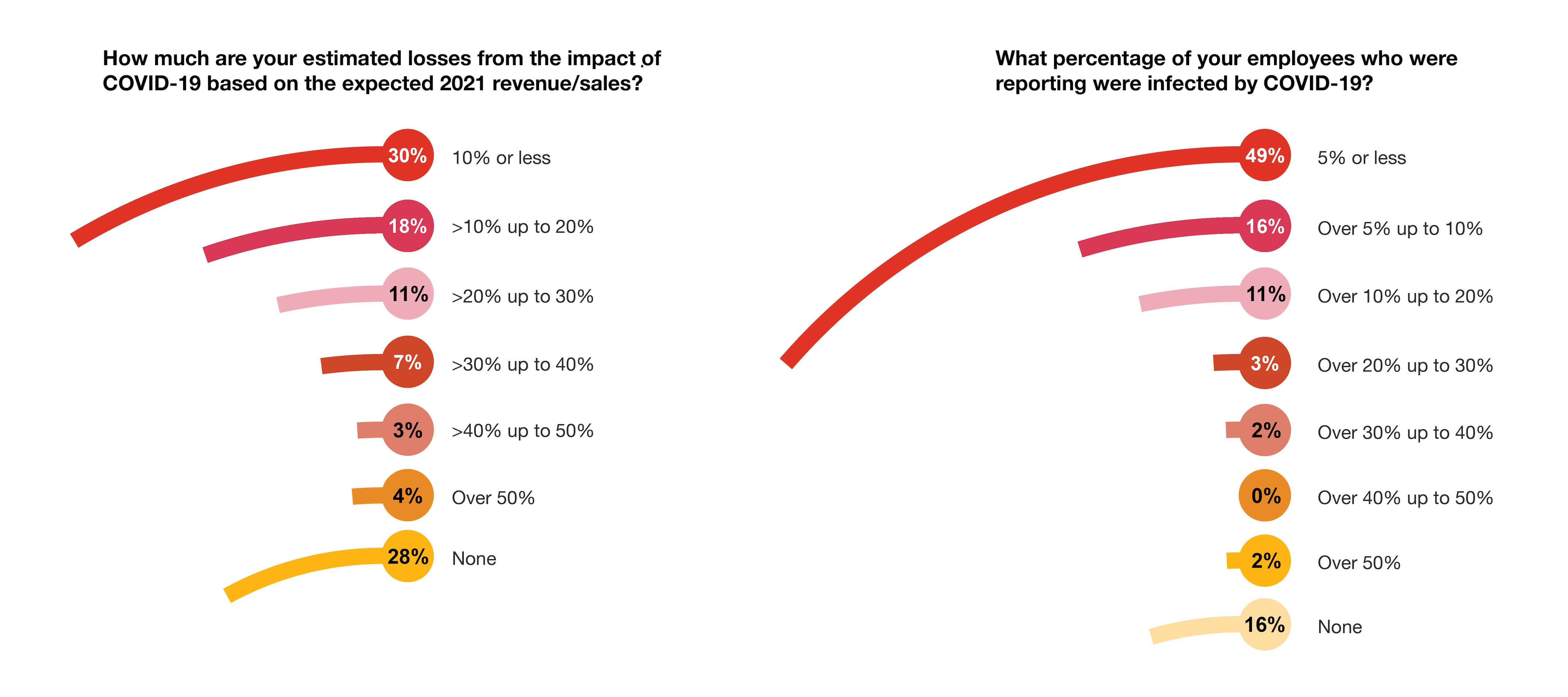
It was in 1997 during the Asian Financial Crisis when the Philippines last experienced a recession. Back then, it took five years for the country to have a real GDP growth rate of at least 5%. While the economic contraction is much deeper now, initiatives driven by both the government and private sector are expected to help accelerate the recovery. To rebuild and strengthen their businesses, most CEOs plan to launch new products and services, explore new markets, and defer capital investments. While majority of the CEOs say that they don’t need external funding for their companies, most agree that tax incentives and a strong recovery plan for each sector are essential. More importantly, having an effective and equitable vaccination program will be critical to ensure the safety of our people as well as the success of our economic programs.
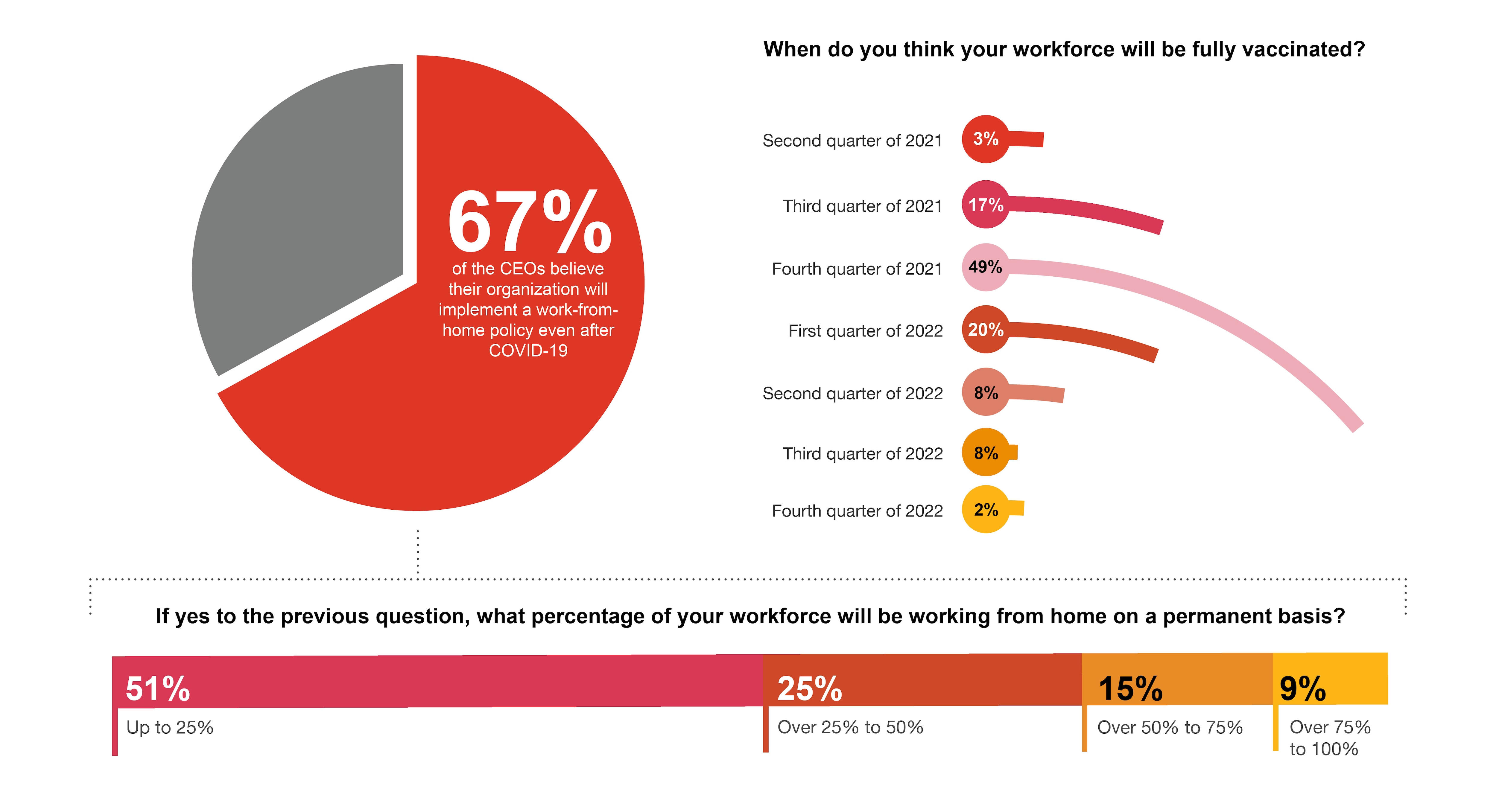
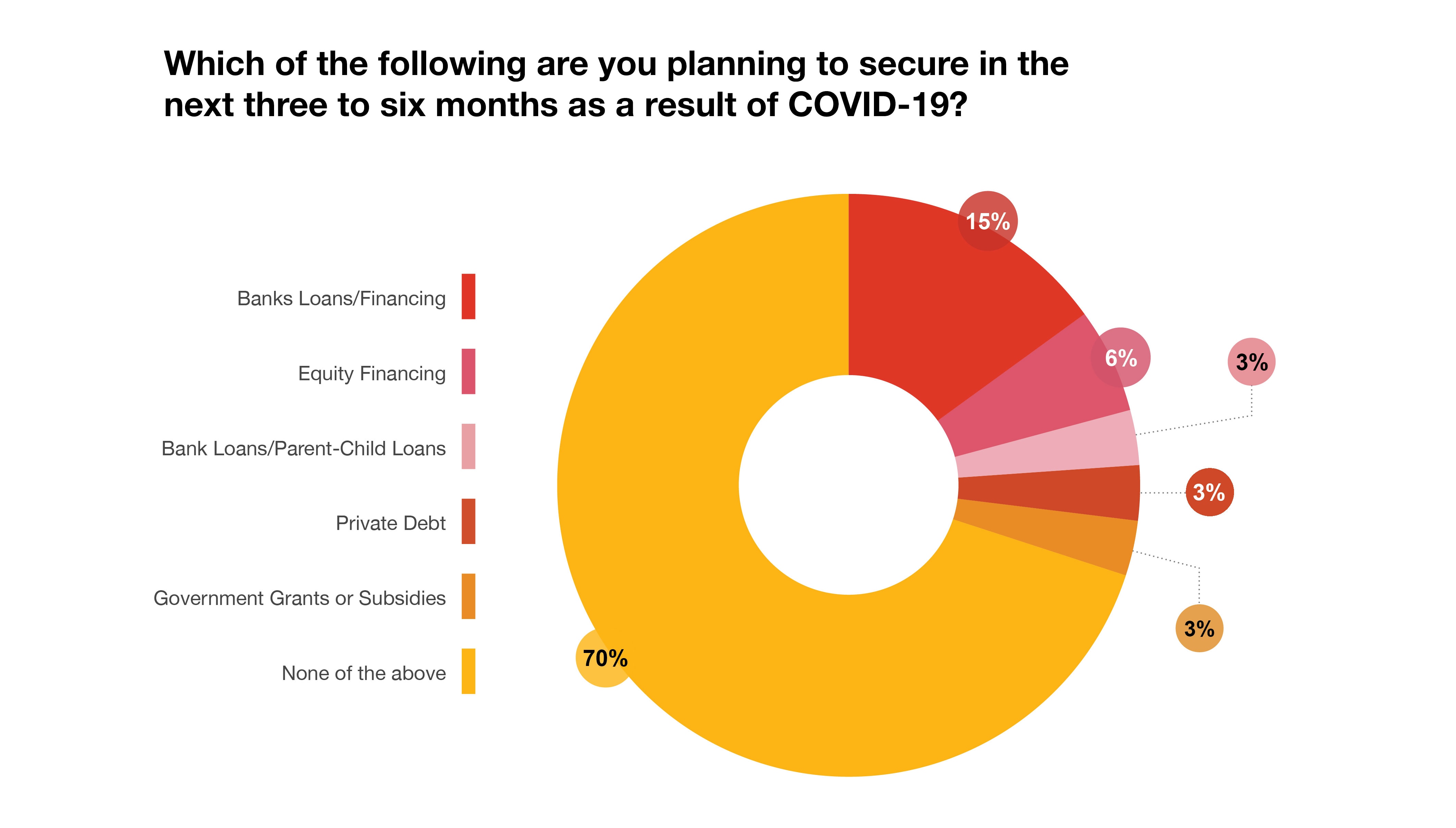
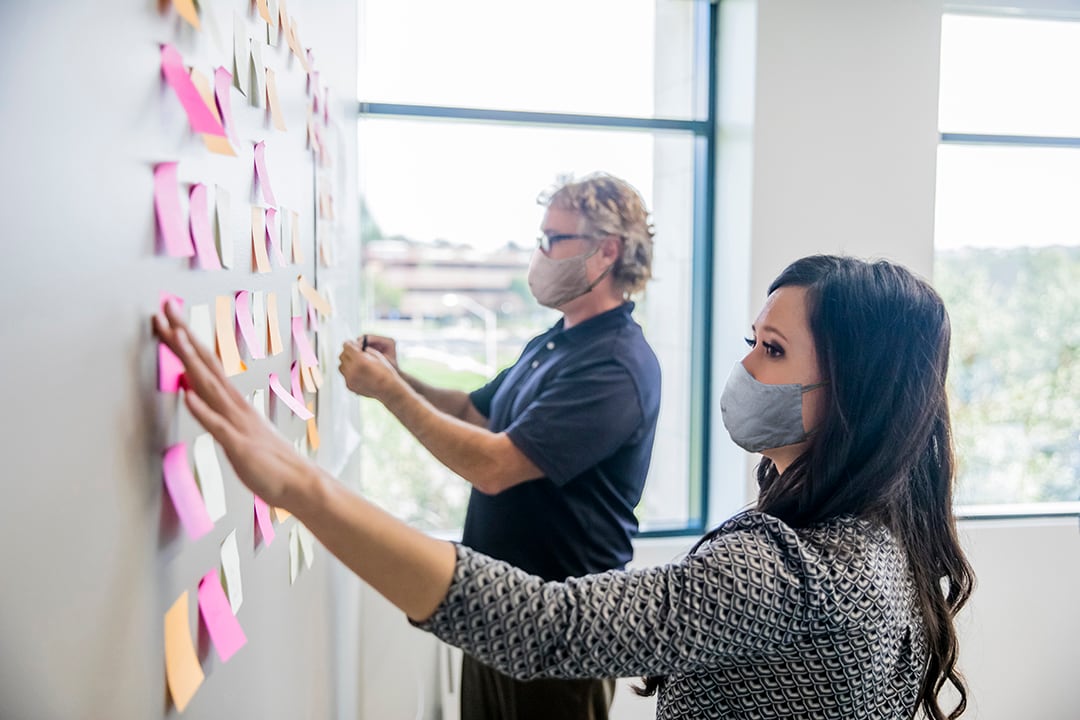
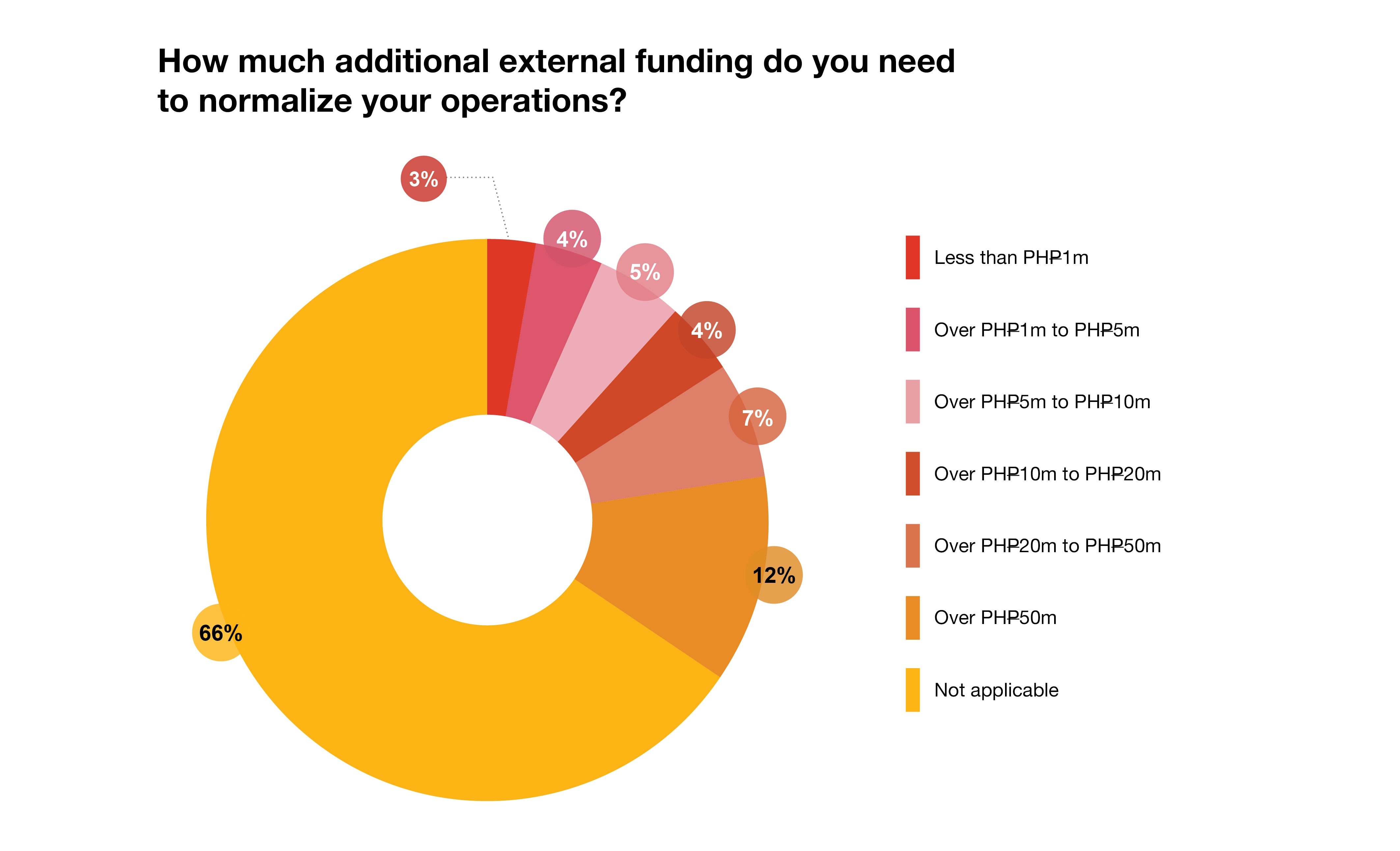
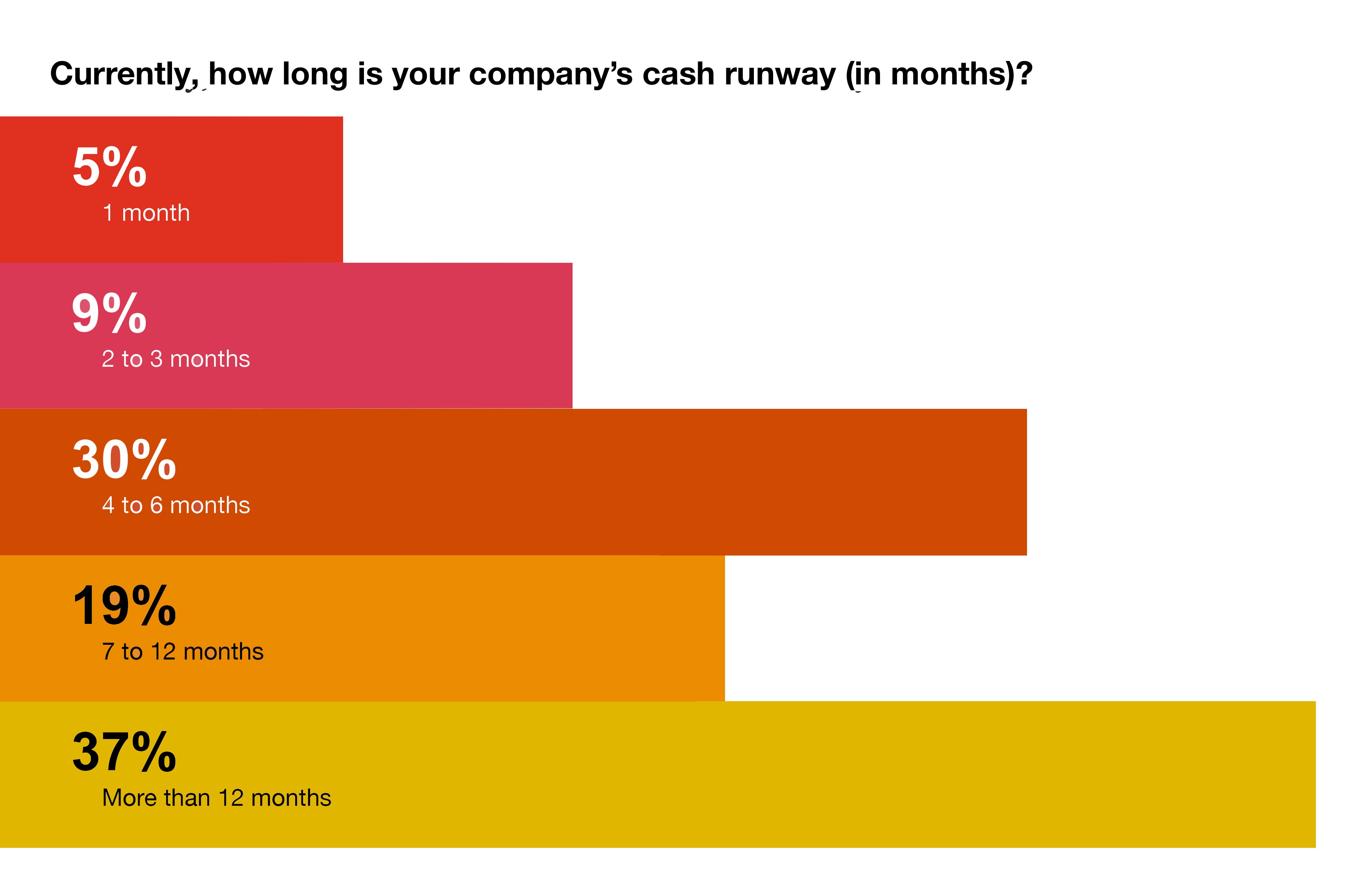
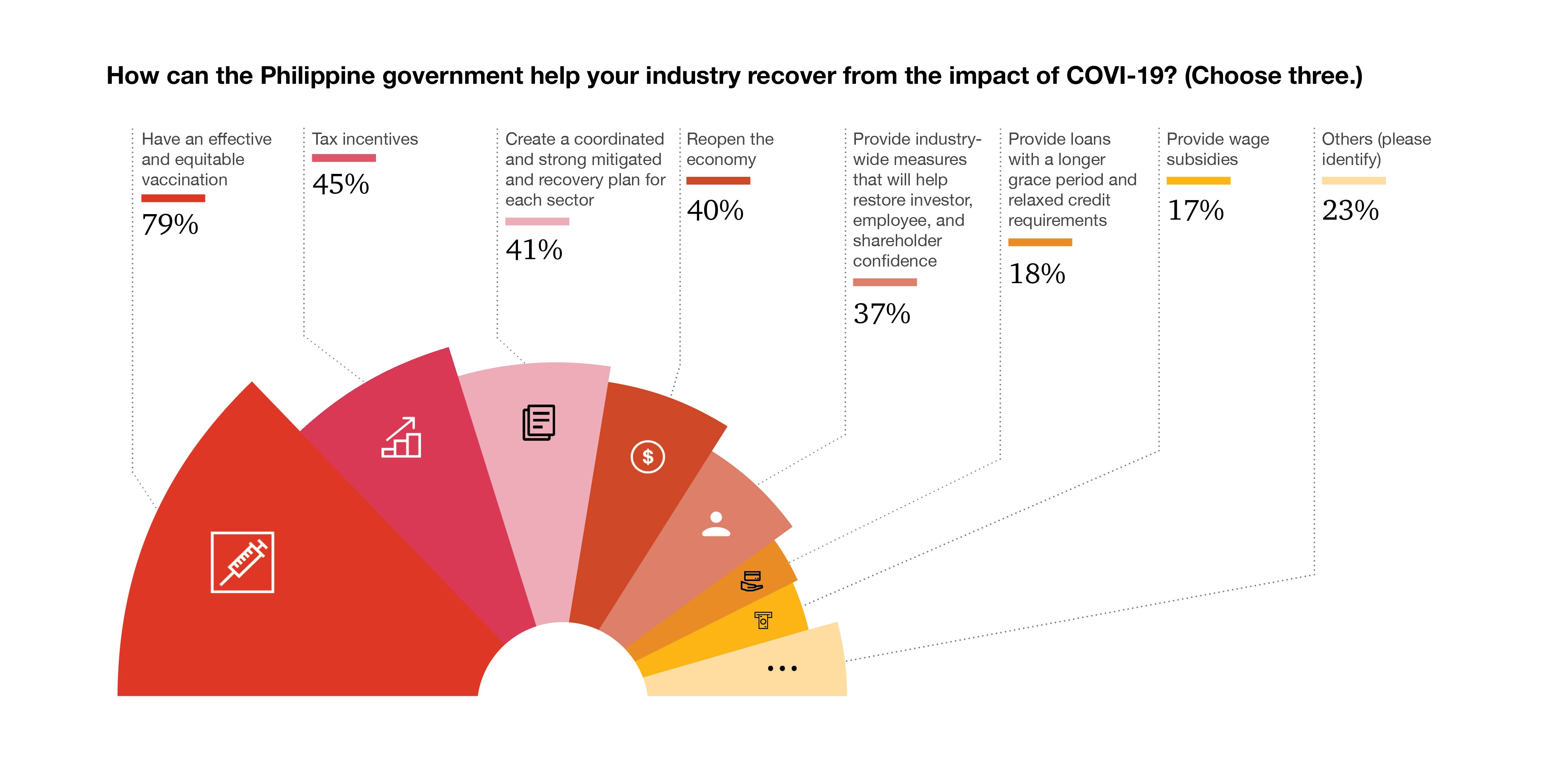
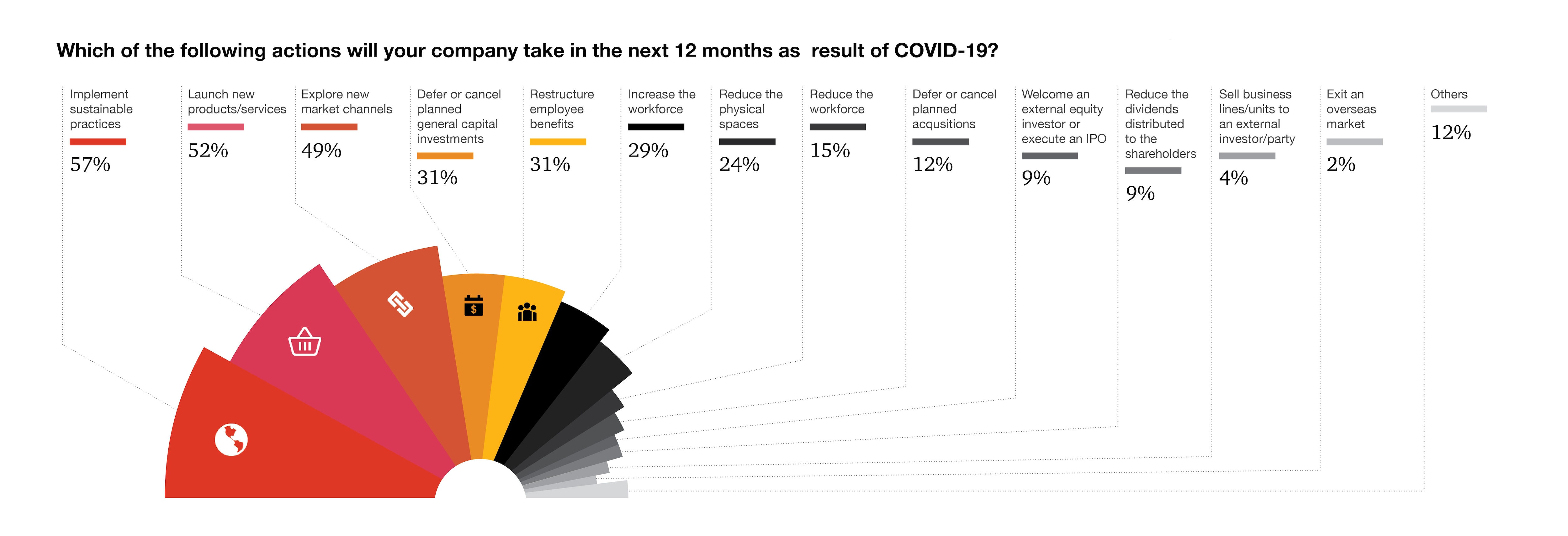
In our past surveys, the CEOs said that they plan to invest in digitalization and sustainability-related initiatives while revisiting their business model and diversifying their products and markets. The pandemic, however, showed us that what worked before may no longer work in the current environment and even in the years to come. Plans that were still on the drawing board were realized and accelerated to adjust to the new reality. Because of the pandemic, more businesses embraced the digital and sustainable way of doing business.
With lives, businesses, and economies disrupted across the world because of the pandemic, a message has been clear - partnerships, digitalization, sustainable business practices, and collaborations between the private sector and the government will help address the impact of the pandemic and drive the road map ahead.
Contact us



Mary Jade T. Roxas-Divinagracia, CFA, CVA
Deals and Corporate Finance Managing Partner, PwC Philippines
Tel: +63 (2) 8845 2728

Karen Patricia Rogacion
Deals and Corporate Finance Partner, PwC Philippines
Tel: +63 (2) 8845 2728







